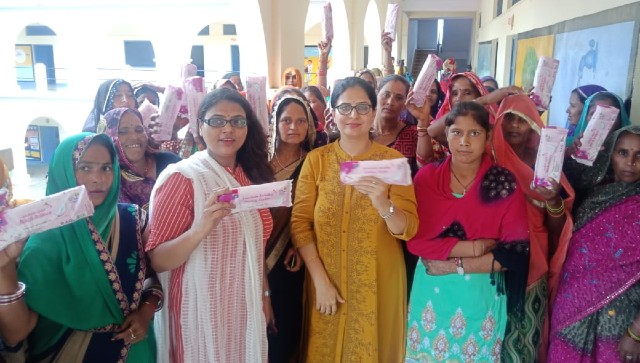Prime Minister Narendra Modi made history on 15 August 2020 by openly discussing menstruation and sanitary pads in his Independence Day speech in a country where millions hesitate to bring up this topic, and where sanitary pads are still wrapped in newspaper and black plastic bags. Menstruation is normal, yet the culture of silence enveloping women’s bodies affects how girls and women receive information, access essential products, seek health care and social support to manage their menses well. Breaking this deeply embedded culture of silence can help improve the health and wellbeing of girls and women. Modi contributed to the efforts to normalise menstruation in India by publicly addressing this issue in his Independence Day speech to India’s millions. Modi highlighted the Suvidha initiative of the Ministry of Chemicals and Fertilisers that has provided five crore low-cost sanitary pads through over 6,000 Jan Aushadhi centres across India. The initiative, like others focused on sanitary pad distribution, is significant in that it tackles lack of access to affordable sanitary pads. This is important given that only 57.6 percent of young women in the age group 15-24 were found to be using a hygienic product during menstruation as per the National Family Health Survey 2015-16. This is not the first scheme to make sanitary pads more widely available in India — free or subsidised sanitary pads have been made available to adolescents in schools and community settings in several states through the Departments of Education, Health and Family Welfare, and Women and Child Development (under Integrated Child Development Services) since 2010, with intensified efforts since 2015. The Suvidha initiative, however, is distinct from these other initiatives in their effort to minimise the environmental impact of plastic waste by offering oxo-degradable sanitary pads through the Jan Aushadhi centres. Plastic is an important component in most disposable sanitary pads. But, are oxo-degradable materials really safe for the environment? Biodegradable materials are those that break down into carbon dioxide, water and other inorganic compounds through natural biological processes, over any time period and under natural conditions. Even plastics in a landfill are biodegradable over hundreds of years (generally 500-800 years). Compostable materials are a subset of biodegradable materials and undergo the same degeneration process, but within a specific time period (90-180 days) and under specific composting conditions and leave only carbon dioxide, water and biomass (similar to plant biomass that provides carbon and nitrogen to the soil). Hence, products claiming to be environment-friendly should ideally be compostable. Oxo-degradable materials, while biodegradable, are not fit for composting, as they are conventional plastics that have added chemicals (additives) that allow them to break down into micro plastics when exposed to UV light, heat and/or oxygen. These micro plastics remain in the compost and upon entering the soil or water systems, can have detrimental environmental implications (remaining and accumulating in water and soil) and serious health impacts (such as cancers, endocrine disruption and impaired immunity). Further, these materials cannot be recycled given the challenges in segregating micro-plastics from conventional plastic waste, and will remain within the recycled materials. A study conducted by the Central Pollution Control Board (CPCB) in 2009 and a report published by The New Plastics Initiative of the Ellen MacArthur Foundation in 2017 warn of the environmental impact of oxo-degradable materials. The question then arises is: how can the government, product manufacturers as well as non-government organisations continue their commendable efforts to improve access to safe menstrual products to millions of girls and women while also ensuring that these products meet the environmental quality standards? The solution lies within the government itself — the Bureau of Indian Standards (BIS) recently published an updated standard for sanitary pads IS 5404:2019 to ensure that sanitary pads marketed in India are safe for use. The revised standard proposes that products claiming compostability should be tested against ISO 17088 to verify the claim. The related compostability test warrants that products are composted under lab conditions within six months. The Central Institute of Plastics Engineering and Technology (CIPET), also under the Ministry of Chemical and Fertilisers, provides laboratory testing services for ISO 17088 and is recognised by the CPCB and the Government of India for the same. The revised standards are forward thinking and address quality as an important issue, complementing efforts focused on product access. India is a global leader in efforts to address menstrual health and hygiene at scale — efforts that have benefitted many girls and women across the country. While continuing these efforts and extending benefits to many more, action on improved access must be accompanied by quality assurance of menstrual hygiene products. The authors lead the Menstrual Health Alliance India. They aim to foster sharing and learning across organisations working on menstrual health and hygiene, generate evidence on critical and underserved aspects of this issue, and advocate for responsive policies and programs
Though the Suvidha Initiative, which Narendra Modi championed in his Independence Day Speech, helped improve access to affordable sanitary pads, the oxo-degradable pads do not meet environmental quality standards
Advertisement
End of Article


)

)
)
)
)
)
)
)
)



